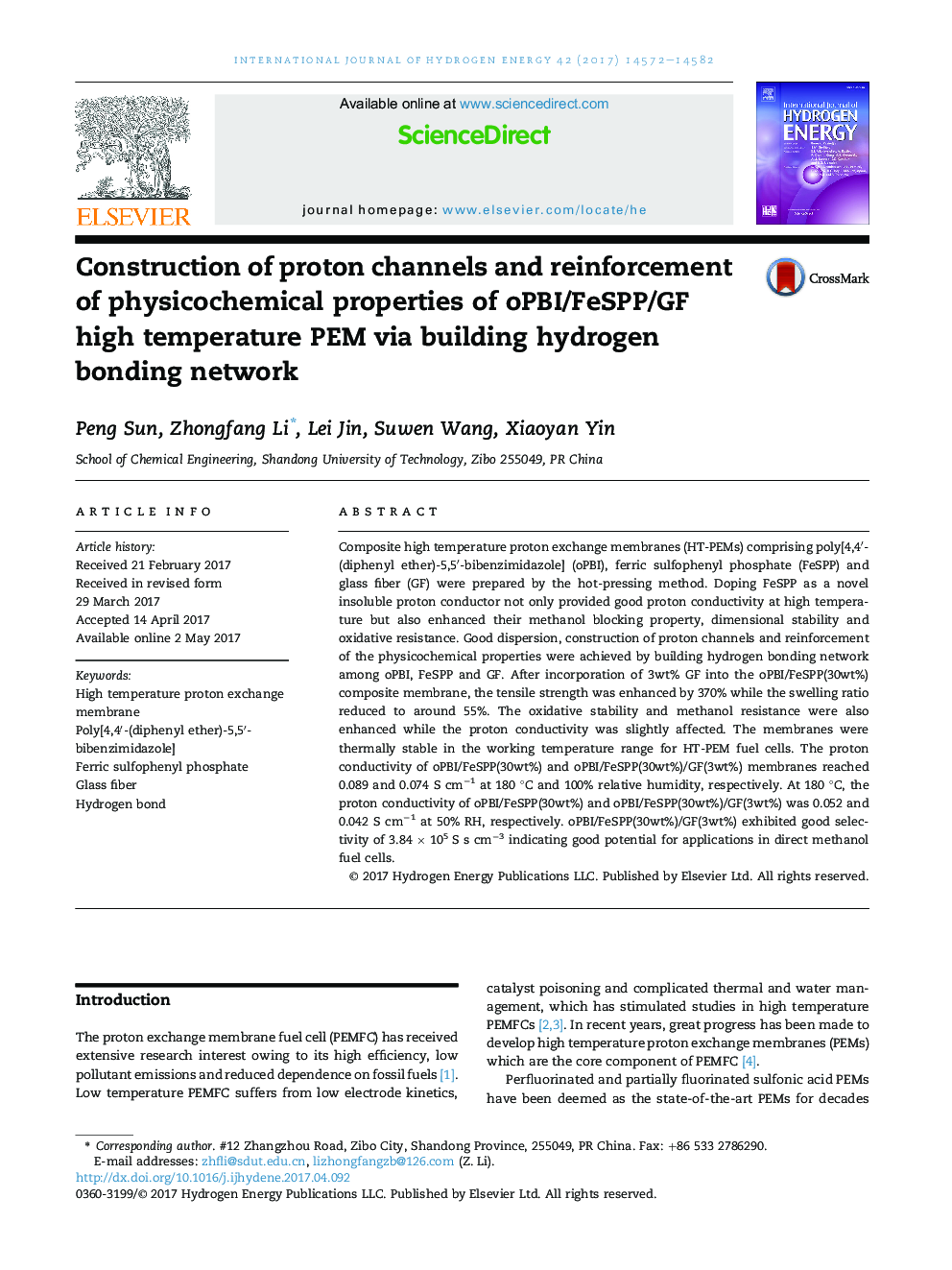| Article ID | Journal | Published Year | Pages | File Type |
|---|---|---|---|---|
| 5145588 | International Journal of Hydrogen Energy | 2017 | 11 Pages |
â¢oPBI/ferric sulfophenyl phosphate (FeSPP)/glass fiber (GF) membrane was prepared.â¢Intense hydrogen bonding networks were constructed among oPBI, FeSPP and GF.â¢The H-bonds provided proton channels and reinforced the physicochemical properties.â¢Good proton conductivity was reached at different humidity at high temperature.
Composite high temperature proton exchange membranes (HT-PEMs) comprising poly[4,4â²-(diphenyl ether)-5,5â²-bibenzimidazole] (oPBI), ferric sulfophenyl phosphate (FeSPP) and glass fiber (GF) were prepared by the hot-pressing method. Doping FeSPP as a novel insoluble proton conductor not only provided good proton conductivity at high temperature but also enhanced their methanol blocking property, dimensional stability and oxidative resistance. Good dispersion, construction of proton channels and reinforcement of the physicochemical properties were achieved by building hydrogen bonding network among oPBI, FeSPP and GF. After incorporation of 3wt% GF into the oPBI/FeSPP(30wt%) composite membrane, the tensile strength was enhanced by 370% while the swelling ratio reduced to around 55%. The oxidative stability and methanol resistance were also enhanced while the proton conductivity was slightly affected. The membranes were thermally stable in the working temperature range for HT-PEM fuel cells. The proton conductivity of oPBI/FeSPP(30wt%) and oPBI/FeSPP(30wt%)/GF(3wt%) membranes reached 0.089 and 0.074 S cmâ1 at 180 °C and 100% relative humidity, respectively. At 180 °C, the proton conductivity of oPBI/FeSPP(30wt%) and oPBI/FeSPP(30wt%)/GF(3wt%) was 0.052 and 0.042 S cmâ1 at 50% RH, respectively. oPBI/FeSPP(30wt%)/GF(3wt%) exhibited good selectivity of 3.84 Ã 105 S s cmâ3 indicating good potential for applications in direct methanol fuel cells.
Graphical abstractDownload high-res image (490KB)Download full-size image
